Today, May 22, we celebrate the feast day of Saint Quiteria
(2nd century), virgin martyr for the faith. Depending on which account of her life you
read, Saint Quiteria and her sisters were soldiers for Christ—traveling the
countryside, freeing Christians from imprisonment, and smashing pagan
idols. Her courageous proclamation of
the Gospel led to her eventual capture and death, although her faith never
wavered. Quiteria and her sisters
demonstrate that from the direst of circumstances, the Lord can create
miraculous moments of love and truth!
Quiteria was born into royalty, the daughter of a Galician
prince. She was one of nine daughters
born together (nonuplets). Her mother,
Calsia, was disgusted at the fact that she had produced nine daughters (rather
than sons), and suffered through nine childbirths. Viewing the experience as a
waste of her time, she ordered her maid, Sila, to take the nine girls to the
river and drown them. Sila, however,
was a Christian, and secretly refused the task, instead delivering the infants
to a Cistercian monastery to be raised in community.
Quiteria and her sisters were raised by monks, baptized as
Christians, and embraced the faith.
Quiteria was the most dedicated of her sisters, studying and practicing
the tenets of the faith, reading the Gospel, praying, and developing a profound
devotion to Our Blessed Mother. The
monks, placing a strong premium on truth, informed the girls of their royal
lineage when they were old enough to understand. Yet, none of the girls wished to return to the palace or live a
luxurious lifestyle. Instead, they
became warriors for Christ, forming a “gang” who traveled the country, breaking
Christians out of jail, proclaiming the Gospel, and smashing pagan idols.
The gang survived for a few years, but were eventually
caught and brought before the King, their father. Recognizing his daughters, he requested that they give up their
reckless ways and come live in the palace with him. This they did, but only to witness to the royal court. The sisters converted their rooms into
prayer halls, and spent their days praying and praising the Lord. When the king realized they were
Christians, he ordered them to renounce their ways, sacrifice to the Roman gods,
and marry pagan husbands.
The sisters refused, led by Quiteria. They were immediately jailed, but their
imprisonment did little to lessen their faith or joy in the Lord. In jail they praised and glorified Jesus,
and eventually an angel came and proclaimed to Quiteria, “Happy and fortunate
you are, for you deserved to find grace in front of God, so that God has chosen
you as his spouse. It is God's will, that you are to live in solitude in the
Mount Oria and there you will exercise in oration and contemplation.”
Released from imprisonment by the angel of God, the sisters
split up, escaping by each traveling in a separate direction. It is said that they were each eventually
killed for their Christian faith. Quiteria,
for her part, followed the angel and did as instructed, forming a small
community of women on the hills of Mount Oria, and living for a brief time in
peaceful contemplation of the Lord. She
was eventually captured, and subsequently freed from imprisonment again by an
angel. In the process of her
imprisonment, she converted many, and her community continued to grow.
Eventually, Quiteria encountered the powerful ruler of the
city of Aufragia, Prosen Lastiano. She
successfully converted him to Christianity, but a few days later he reverted to
his pagan beliefs. Humiliated in front
of his people, he ordered Quiteria tracked down and killed. His soldiers tracked her to her hillside
community, but upon approach, Prosen suffered inexplicable injuries, including
the loss of feeling in his hands and legs.
Quiteria prayed for him, and his senses and movements were
restored. Again, he converted to
Christianity, this time filled with the faith of God. Many of his followers did the same, which infuriated the king.
Under his order, Quiteria was found and beheaded for her
Christian faith. Prior to beheading,
she is said to have kept the king’s vicious attack dogs at bay, with simply a
gentle word. For this reason, she is
often invoked against rabies, and frequently pictured leading a dog. (In rural Spain and France, farmers continue
to lead their livestock to a bridge that is said to contain a relic of Saint
Quiteria. Passing the animals over the
bridge is said to protect them from contracting disease). Each of the women who had found refuge in
her community was beheaded as well.
Legend states that following her martyrdom, Saint Quiteria walked to the
Church of the Virgin Mary, carrying her head in her hands. There, at Airein Gascony, her relics were
interred (until later scattered by the Huguenots), and she continues to be venerated
in southern France and northern Spain.
The live of Saint Quiteria, while possibly pious legend, is
one of struggle for the faith. Despite
a chance at a luxurious lifestyle, this lovely young woman and her sisters
instead chose to fight for the truth of the Gospel, forsaking her family, her
comfort, and eventually her life. Saint
Quiteria’s courage and faith remind us that in our moments of difficulty, we
need only turn to the Lord for inspiration and support, and that He will send
His angels to protect and assist us. We
pray today for the confident faith in Christ, as exemplified by so many of the
saints and martyrs that have come before us!








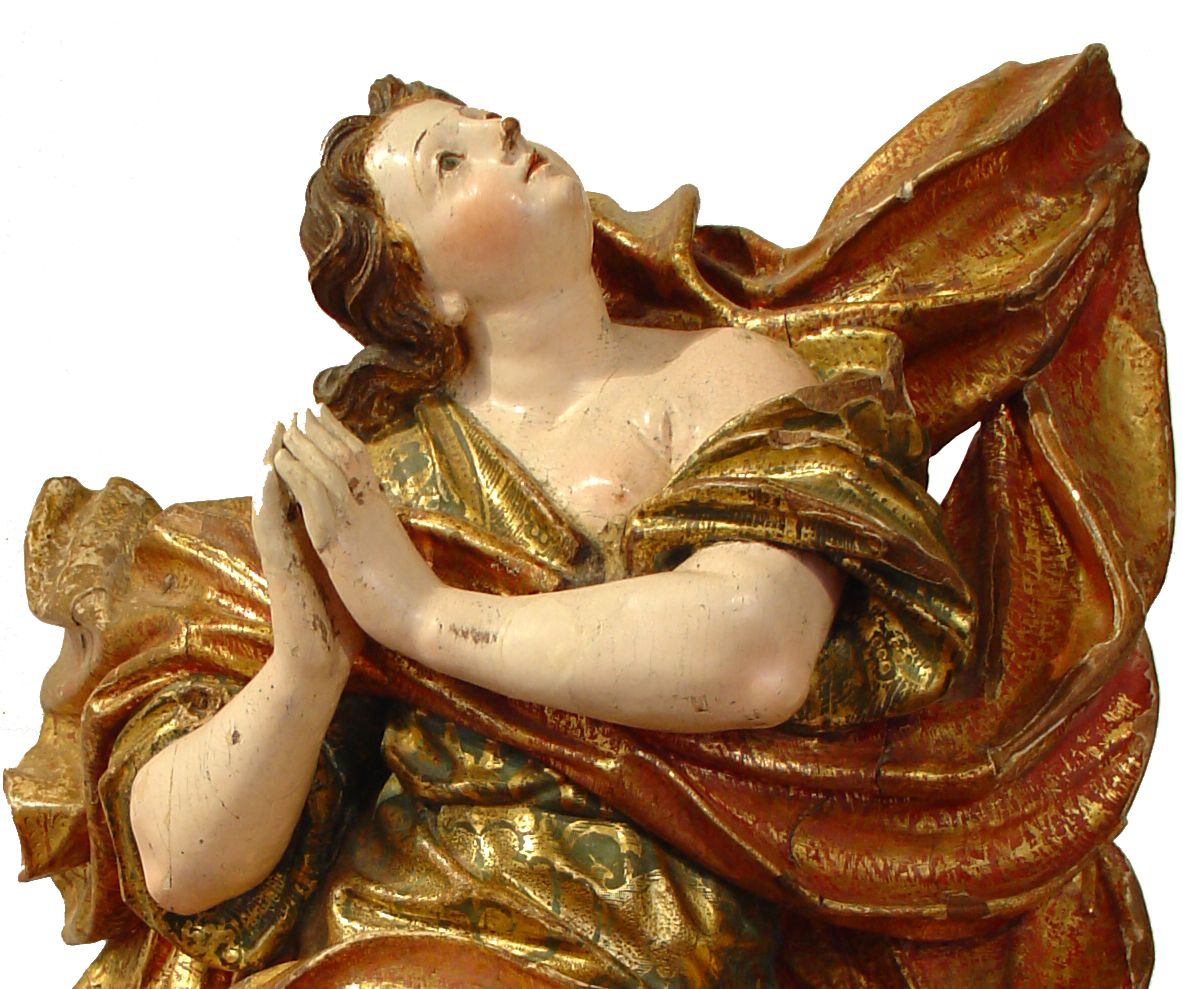
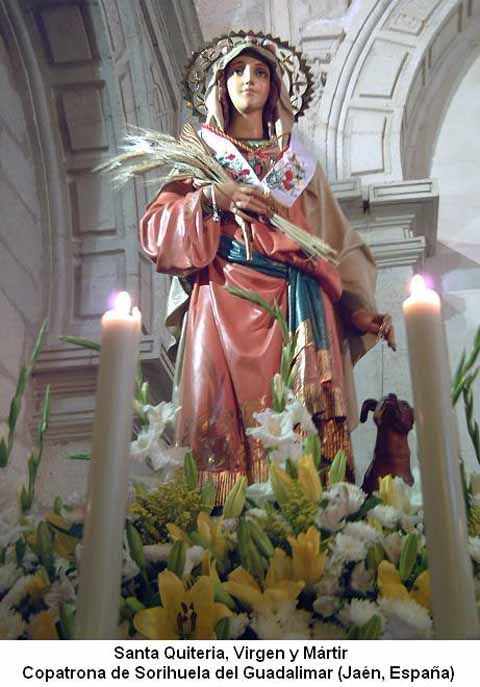
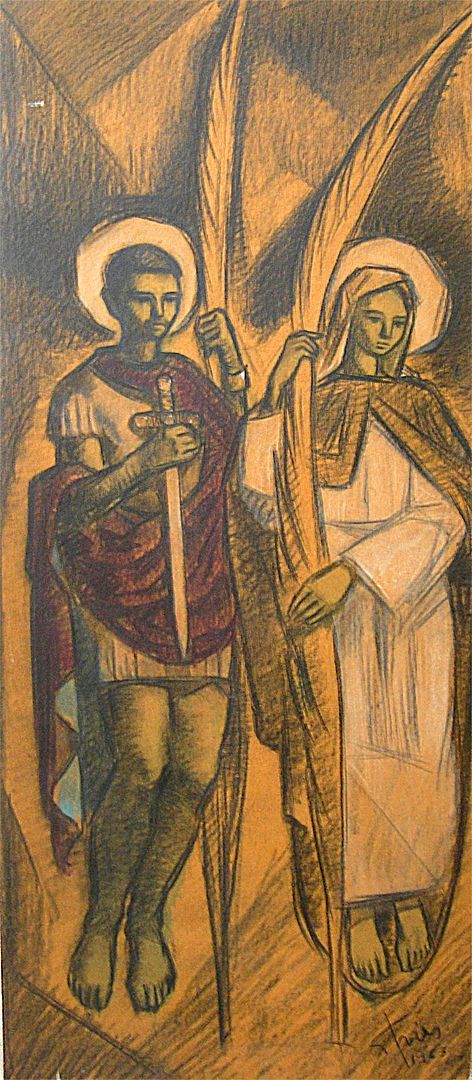


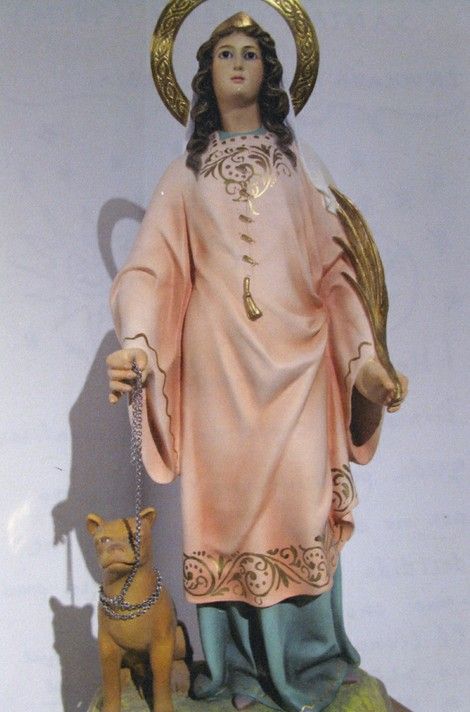

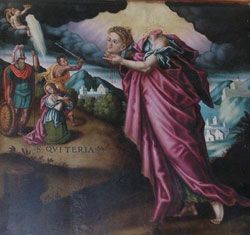
0 comments:
Post a Comment
Thanks for leaving a comment. If you wish to submit a prayer request, however, please do so above, using the "Contact" tab.